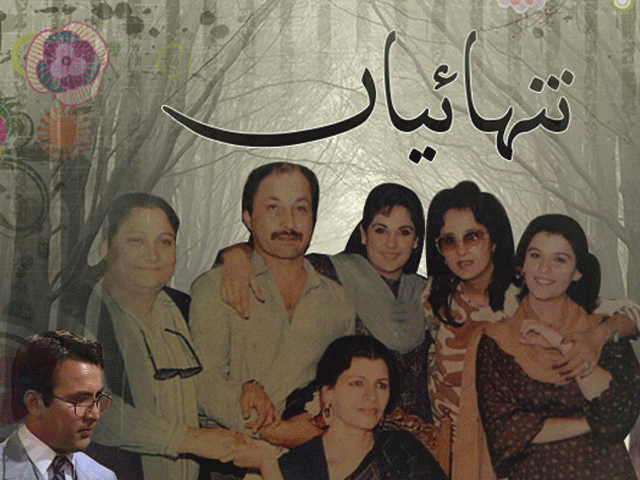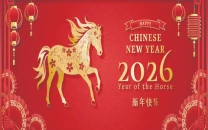What the VCR meant for us Pakistanis
The formal proclamation of the end of the ‘VCR age’ calls up memories

PHOTO: VIDPK
For the new generation, it was just one of the hundreds of news items that reach them on any regular day. However, to the people who have active memories of the times before the commencement of the new millennium, this report struck like the news of the death of an old friend – the announcement of the demise of a long dethroned king, who in his heyday defined the life of his times.
This formal proclamation of the end of an already bygone ‘VCR age’ called up dozens of images to my mind. And one of them was like this:
A small, dark but air conditioned room. A group of little children sitting very close to a colour TV watching with utter amazement what appears to them an exotic world conjured up in the Pag Ghungroo Baandh song from Namak Halaal.
Suddenly the door opens and enters a grown-up man with a grimace. This man walks up to the TV and does something to the magical device sitting in a slot beneath it. The song disappears along with all its colours and there emerges on the screen a shoal of fish moving in a synchronised manner in the depths of some ocean.
The visiting children are dismayed by this distraction and wait for a while in front of the TV in the hope that the movie will resume. However, somebody tells them that now it is time for a National Geographic documentary and that the same magical device is now being used to record it.
This was my first encounter with the VCR, which was to become a vital part of our individual and collective lives for years to come. In Pakistan, the ‘VCR age’ had strangely coincided with the advent of colour TV and the beginning of a decade or so of an ephemeral prosperity, fuelled by a rush of people to the oil rich Middle East.
And like its predecessors, radio and TV, the VCR in the beginning also became a reason for socialising and a source of cheap and often collective entertainment. The houses with the VCR used to have a magnetic quality; relatives and friends – even distant ones – flocked to them on holidays or special occasions to watch often multiple movies at a time.
But simultaneously the VCR was also giving birth to new economic activity. The recording device had enabled the people to proliferate pirated films and TV shows in a least regulated world of the 1980s and 1990s. With the increasing numbers of the VCRs, the film rental business – also called ‘video centres’ – flourished and reached every nook and corner of the country.
Apart from providing cassettes of Bollywood and Hollywood flicks, these centres also offered for rent the VCRs and TV sets on hourly or daily basis to the ‘less-privileged’ who eked out an existence without this vital invention.
Another cultural phenomenon associated with the VCR and the newly arriving video camera was the vogue of filming wedding ceremonies. The new trend of recording a ‘movie’ of wedding functions was to change for good the way our weddings were organised and celebrated. However, the cultural effects of the VCR were far more numerous. The VCR age was also synonymous with the downfall of both cinema culture and the Pakistani film industry. But this decline was not just an effect of the ease and economy that VCR offered to the film lovers.
The Pakistani film industry had faced practically no competition since 1965, when a ban was imposed on Indian films in the wake of the Pakistan-India war. In this uncompetitive environment, the industry had failed to evolve itself – a factor that had made it too flimsy to withstand the onslaught of the Indian movies.
Another factor might also have played some little role in this decline.
When there was a complete ban on Indian films, some Pakistani directors and producers took the easy route of plagiarism. According to some writers, these people went to Afghanistan to watch latest Indian flicks and later developed their exact or slightly altered Pakistani versions.
This practice continued successfully till the arrival of the VCR in the late 1970s, which not only exposed their earlier productions but also deprive these directors of their ‘source’ of inspiration.
And so this downfall coincided with the popularity of Bollywood movies and the resultant so-called Indian cultural invasion, which continues even to date and which indeed has affected – for better or for worse – many aspects of our collective lives.
Apparently this cultural influence was becoming manifest in our language, dressing and fashion as well as enthroning of Indian stars – Amitabh, Anil Kapoor, Shah Rukh, Aamir, Salman and their female counterparts – as heroes and heroines of our times in place of Pakistani actors.
But on the deeper level, this invasion was perhaps also creating a new individual with a new world view – a man who had developed independent of our ‘Two Nation Theory-based’ education system and the influence of the deeper social, intellectual, philosophical and mystical messages of the PTV dramas.
However, by this time the VCR was also becoming associated with moral degradation.
Apparently, this device had brought with it something, which was present earlier at a very limited level and only in literature and magazines – pornography. Before the advent of Internet in Pakistan, the biggest sources of such stuff were the very ‘video centres’ that also purveyed the other regular films.
Now at the funeral of the device, we are free to castigate it. But we cannot deny that like all powerful inventions, its use or misuse changed our life for good. The story of the VCR also tells us that while culture is all about ‘inventing’, the inventions also create a culture, even if that of sloth or passivity.
Published in The Express Tribune, August 15th, 2016.
Like Life & Style on Facebook, follow @ETLifeandStyle on Twitter for the latest in fashion, gossip and entertainment.



















COMMENTS
Comments are moderated and generally will be posted if they are on-topic and not abusive.
For more information, please see our Comments FAQ